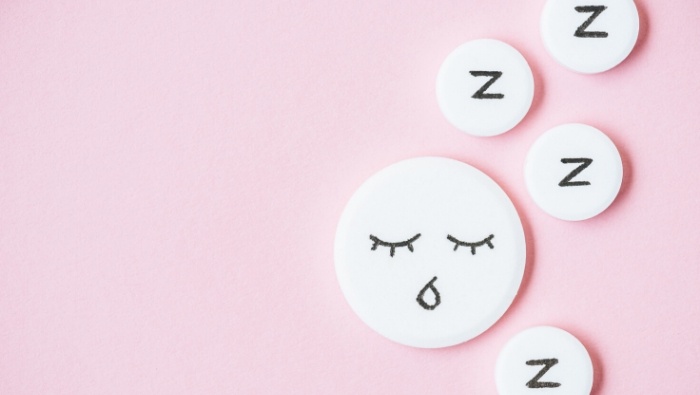8 No-Cost Ways To Get To Sleep
Do you have trouble falling asleep more often than not? No need to pay for pricey sleep solutions. Try these no-cost ways to get to sleep, and you will soon be sleeping peacefully and affordably!

As busy as our lives are, sleep should come easily each night, right? But stress, worries, and the hassles of daily life can keep us tossing and turning when we should be getting some much-needed rest.
Sleep is crucial to good health. According to the National Institute of Neurological Disorders and Stroke, “Sleep affects almost every type of tissue and system in the body from the brain, heart, and lungs to metabolism, immune function, mood, and disease resistance. Research shows that a chronic lack of sleep, or getting poor quality sleep, increases the risk of disorders including high blood pressure, cardiovascular disease, diabetes, depression, and obesity.”
No-Cost Ways To Get To Sleep
Experts at the Mayo Clinic cite stress, including financial worries, as a cause of insomnia, so paying for pricey sleep aids may only make the situation worse. Instead, try some of these free ways to get some better shut-eye:
1. Turn off your screens.
Research has found a link between the blue light emitted by electronic devices and suppression of the hormone melatonin, which is associated with sleepiness. In short, too much screen time before bed can interfere with your ability to fall asleep. Turn off all your screens two to three hours before bed and relax with a good book, some gentle stretches, or one of the other tips in this article.
2. Count your blessings.
One of the most potent antidotes to worry is gratitude. By focusing on the good things in your life, you will eventually drown out negative thoughts.
Related: Being Thankful for Having Less
Sign Up for Savings
Subscribe to get money-saving content by email that can help you stretch your dollars further.
Twice each week, you'll receive articles and tips that can help you free up and keep more of your hard-earned money, even on the tightest of budgets.
We respect your privacy. Unsubscribe at any time.
3. Pray or meditate.
In a study conducted by researchers at the University of Southern California and the University of California Los Angeles, mindfulness meditation significantly improved insomnia symptoms in the study’s participants. You can find free audio meditations online.
4. Read a happy children’s book.
Revisiting childhood favorites can take us back to a time when life was simpler for many of us. Some children’s books are even specifically designed to help kids calm down and get ready for sleep. They work the same for adults. Check out some of these soporific titles from your library and let them lull you to sleep. Classics such as Goodnight Moon by Margaret Wise Brown and Clement Hurd and Where the Wild Things Are by Maurice Sendak made the list of best bedtime stories at Parents.com. You could also ask your local librarian for suggestions.
5. Listen to relaxing music.
SleepFoundation.org touts music’s ability to help you fall asleep faster and sleep better. There are hours of free musical cures for insomnia on YouTube. Just get comfortable, turn out the lights, and put on some headphones. You’ll soon be relaxed and ready to nod off.
6. Make a kindness calendar.
When the wars, politics, and news stories of the day keep you up, try writing at least one act of kindness you performed, received, or witnessed that day on your calendar. Whenever it seems there is more bad news than good, read back over the kind acts you recorded to help you remember that the world is, indeed, a good place.
7. Rehearse instead of ruminate.
Up all night thinking about what you should have said to the coworker who disagreed with you or your spouse during your argument? Instead of going over and over a situation that has already happened, practice an assertive statement you can use tomorrow to settle the conflict and move forward.
Assertive statements are very effective at resolving disputes. First, use an “I” statement to describe the hurtful or problematic behavior and then make a request that will remedy the situation. Practice with online tools like the one in Psychology Today’s “A, B, C’s of Assertive Behavior.”
8. Memorize a joke to tell someone tomorrow.
This can relieve anxiety in several ways. First, you must search through joke books or websites to find a good joke. It’s difficult to be anxious when reading jokes. The Mayo Clinic says that laughter is a powerful medicine for stress relief. Plus, practicing the joke in your mind takes the focus off unpleasant thoughts, and brightening someone’s day when you tell the joke makes you both feel better.
Employ one or more of these tips each night, and you will soon be sleeping peacefully!
Reviewed August 2024
Popular Articles
On After50Finances.com
- 9 Things You Need to Do Before You Retire
- You Didn’t Save Enough for Retirement and You’re 55+
- When Empty Nesters Reorganize and Declutter Their Home
- Reinventing Your Career in Your 50s or 60s
- What Mature Homeowners Should Know about Reverse Mortgages
- 2 Reasons to Collect Social Security Benefits As Soon As Possible


